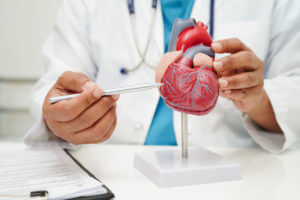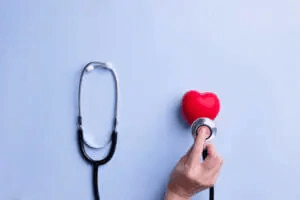Heart failure is when the heart cannot pump blood to meet the body’s needs. According to the CDC, nearly 6.7 million Americans over the age of 20 have heart failure. In 2022, heart failure was listed as the cause of death on 457,212 death certificates. A cardiologist is a medical expert in diseases that affect
Read MoreCardiologist in West Orange New Jersey
When to Get an Echocardiogram: Diagnosing Heart Conditions with Ultrasound
The heart, that tireless muscle that keeps us ticking away, is a powerhouse in the body. But like any complex machine, sometimes it needs a closer look. That’s where an echocardiogram, affectionately referred to as an ‘echo,’ comes in handy. This non-invasive medical test harnesses the power of ultrasound waves to capture live images of
Read MoreNeurologist and Stroke Care: Rapid Response and Long-Term Management
Stroke is an acute medical condition that deprives brain tissue of vital oxygen and nutrients. As one of the major causes of death and disability worldwide, stroke care requires rapid response and long-term management. Let’s explore the symptoms of stroke and rapid response and long-term management with a skilled neurologist. The Symptoms of a Stroke
Read MoreWhat to Expect When You See a Cardiologist
If you’ve been referred to a cardiologist for the first time, you may be feeling anxious and unsure about what to expect. Cardiologists are medical doctors specializing in diagnosing and treating heart conditions, but many patients don’t know what their first appointment will entail. Let’s explore when to see a cardiologist and what to expect
Read MoreWhen Should You See a Cardiologist
Undoubtedly, our heart is one of the most critical organs of the body. It pumps oxygenated blood throughout your body and ensures that all organs and tissues receive the nutrients and oxygen they need to function efficiently and optimally. As such, any issue affecting your heart spells disaster. Heart disease is the leading cause of
Read MoreWhat Is Cardiovascular Disease?
According to recent reports, cardiovascular disease is the leading cause of death in the United States, with one in three women dying from cardiovascular disease. It is also estimated that approximately half of the adults in the US have some form of cardiovascular disease. Cardiovascular disease is an umbrella term that refers to a group of diseases
Read MoreWhat Diseases Do Cardiologists Treat or Help You Prevent?
Cardiology is a medical specialty which focuses on diagnosing, preventing, and treating acquired and congenital defects and diseases of the heart. This specialty usually also involves the entire cardiovascular system – that is, the heart (cardio-) and blood vessels (-vascular). If you have experienced unexplainable heart palpitations (i.e., a sudden chest-fluttering feeling that was not due
Read MoreDo Cardiologists Perform Surgery?
Cardiology is a vast branch of internal medicine that encompasses various subspecialties. As such, it can be quite difficult, especially for a person with no medical background, to know which type of cardiologist to see for a specific type of intervention. For instance, if you need heart surgery, you may wonder if all cardiologists perform
Read MoreWhat Every Patient Should Know Before Seeing A Cardiologist
Heart disease is a leading cause of mortality in the United States. It affects both men and women, as they share many heart risk factors, some of which can be controlled. Your primary care doctor may refer you to a cardiologist if you have symptoms or diagnostic results that suggest you may have a heart condition. A cardiologist
Read More










